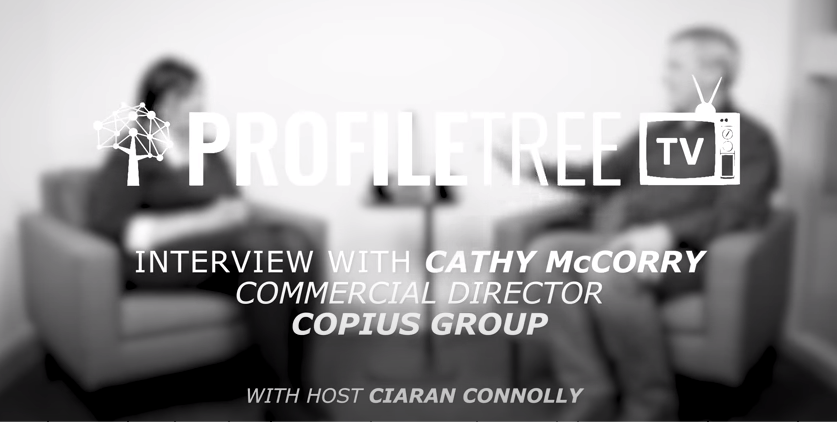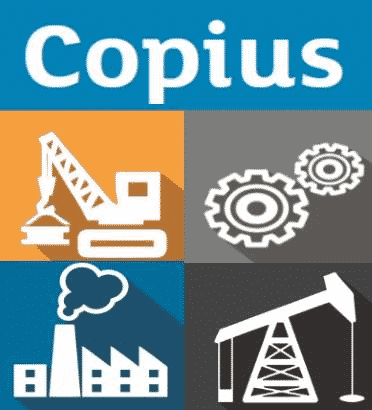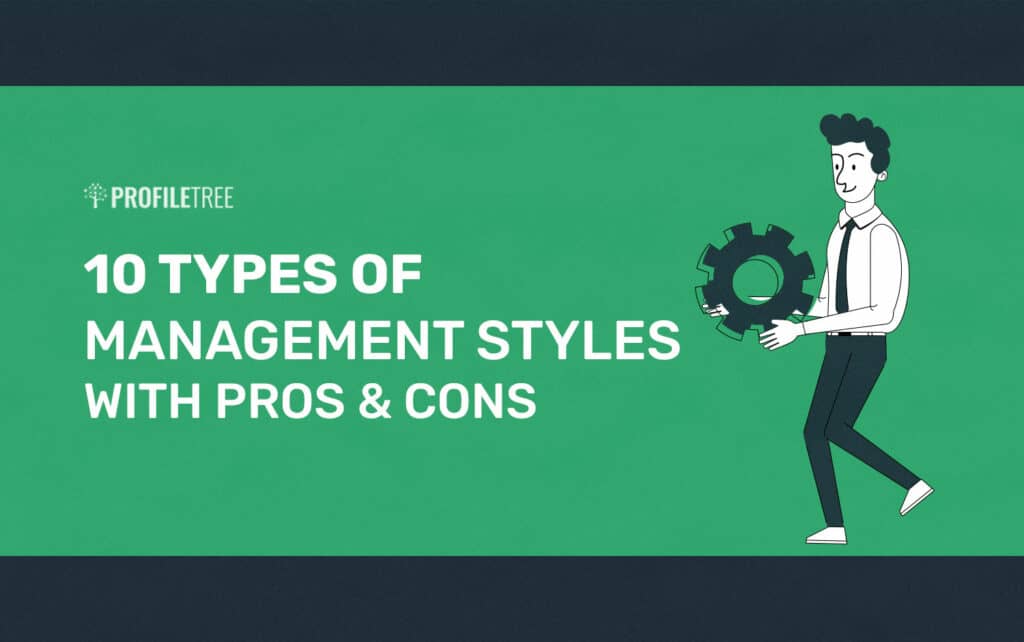Building a team, the beating heart of your business, can feel like navigating a winding mountain road. Do you forge ahead with a handpicked crew, carefully recruited and nurtured within your own walls? Or do you seek the agility of nimble partners, subcontracted experts ready to tackle specific challenges? The choice between sub-contracting and recruitment lies at this very crossroads, each path offering unique advantages and challenges.
Sub-contracting, like hiring skilled Sherpas for your business climb, brings specialized expertise and flexibility. These external partners can quickly scale your workforce for short-term projects, freeing your internal team to focus on core competencies. Imagine tapping into a network of tech wizards for a rapid software development project or enlisting seasoned marketing veterans for a targeted campaign.
Recruitment, on the other hand, builds your own expeditionary force, a loyal and cohesive team invested in your long-term vision. These in-house talents, like dedicated mountaineers trained on your terrain, offer deeper knowledge of your business and a commitment to its success. Think about cultivating a team of passionate developers who intimately understand your code base or nurturing customer service specialists who embody your brand values.
But the choice isn’t a binary one. This introduction is just the base camp, the starting point for understanding the intricate dance between sub-contracting and recruitment. We’ll delve deeper into the advantages and disadvantages of each approach, helping you identify the optimal path for your specific business expedition.
So, buckle up, fellow trekkers. Let’s explore the winding trails of sub-contracting and recruitment, uncovering the strengths and weaknesses of each, and equip you with the knowledge to build the most efficient and effective team for your business journey.

The world of recruitment is fast-moving and ever-changing. Nowadays, employers have to invest time and money into attracting and finding workers who can carry out specialist roles.
But how is this done? In our latest Business Leaders episode, we speak with Cathy McCorry, of Copius Group, to discuss subcontracting and specialist recruitment based on her extensive industry experience.
To learn more about Cathy, Copius Group and the world of recruitment, watch our full interview below, or read on for the highlights.
Table of Contents

Who is the Copius Group?
Cathy is the Commercial Director of Copius Group, who offer recruitment and training in many different industries on a global scale.
Copius Group is uniquely positioned as both a subcontractor and a manpower provider to clients on projects within the energy and power generation, ICT, marine services, engineering and construction industries worldwide.
The group is made up of three individual companies with premises in the UK, Ireland, USA and Netherlands.
Cathy’s Career Journey
During her interview, Cathy gave us a personal insight into her career background.
“Copius is traditionally seen as a mainstream recruitment agency. We have been in operation for about ten years and I joined the company about three years ago. But I came into recruitment in a very long, roundabout way.”
As with many professionals, Cathy initially specialised in an industry that’s completely different from the career path she followed.
“I originally trained as an accountant, but I found it a bit boring. I then got into financial services, then I was offered an interview for a job through a recruitment agency. The lady who owned the recruitment agency offered me a job. This was an opportunity to then work with people everyday, which I love to do. I also thought it was a new challenge.”
From this, Cathy’s ambition to advance her skills saw her take several new career leaps.
“I then progressed from there to a larger company, who had big ambitions to grow their business and wanted to bring new people on board that had similar ambitions. I was with that company for 17 years and became Managing Director. It was a 120 million pound turnover business employing over 700 people worldwide.”
Cathy credits her flourishing career journey to the support she received as a woman in business.
“I was very lucky because the two shareholders who owned that business were very supportive of women and developing women in the workplace. Recruitment traditionally was quite male dominated, especially in the UK landscape whereas if you look at the Northern Ireland landscape it is very female orientated.”
Cathy then took another career jump to specialise in the oil and gas industries.
“I then stepped away and started up my own agency here in Belfast. The company I had worked for was working in the general recruitment space, where we were more of a niche and developed recruitment in the oil and gas sector in particular.
“We had some challenges due to the downturn of the oil and gas market. We then faced either completely reinventing ourselves or looking for new opportunities. At that time an opportunity within Copius Group presented itself. As a result I joined that company as Commercial Director.”

Decoding the Puzzle: What is Sub-Contracting in Recruitment?
In the intricate world of talent acquisition, the lines between in-house and external can sometimes blur. Sub-contracting in recruitment emerges as a strategic maneuver, where you outsource specific components of the recruitment process to specialized third-party partners. Instead of shouldering the entire burden of finding the perfect fit, you entrust certain phases to skilled experts, allowing your internal team to focus on their core strengths.
Imagine this: your company is scaling rapidly, and you need to fill several critical positions quickly. Instead of straining your internal recruiters, you sub-contract the initial sourcing and screening stage to a talent pool agency. These specialists utilize their established networks and advanced search tools to identify a pool of qualified candidates, saving you valuable time and resources.
But subcontracting in recruitment extends beyond just sourcing. Skilled partners can also lend their expertise to:
- Interviewing: Specialized agencies or individual freelancers with specific industry knowledge can conduct initial or even deep-dive technical interviews, providing valuable insights beyond your team’s scope.
- Candidate evaluation: Psychological assessments, background checks, and reference verification can be outsourced to ensure compliance and objectivity, freeing your team to focus on skills assessment and cultural fit.
- Offer negotiation and onboarding: Experienced HR professionals can handle the delicate dance of offer negotiation and initial onboarding paperwork, leaving your team to welcome the new recruit and integrate them into the company culture.
Why Embrace Sub-Contracting?
The benefits of leveraging external expertise are enticing:
- Cost Efficiency: Sub-contracting can be more cost-effective than maintaining a large internal recruitment team, especially for short-term needs or niche skill sets. You pay only for the specific services required, avoiding fixed salaries and overhead costs.
- Access to Specialized Skills: Gain access to a wider pool of talent and expert recruitment know-how you might not possess in-house. For specific technical roles or niche industries, external partners bring specialized tools and networks to the table.
- Increased Scalability: Easily adjust your recruitment efforts up or down based on your needs by engaging or disengaging sub-contractors as required. This flexibility is ideal for companies experiencing rapid growth or project-based workloads.
- Reduced Risk: Partnering with experienced recruitment agencies can mitigate potential compliance risks associated with the hiring process, like discrimination or unfair practices.
However, like any strategic decision, sub-contracting in recruitment requires careful consideration. Challenges like maintaining strong communication, ensuring brand alignment, and managing multiple vendors might emerge. It’s crucial to choose reliable partners with a proven track record and who share your company’s values and culture.
The World of Subcontracting and Specialist Recruitment
Subcontracting is where you hire a firm or person outside of your company to do work as part of a larger project. This type of outsourcing is usually done within specialist industries that undertake big projects such as construction for example.
When it comes to sourcing these specialist workers, that’s where Copius comes in.
“Copius is essentially a recruitment provider but also now a subcontractor. Our key focus in terms of the industry sectors that we provide staff are in oil, gas, renewables, engineering and construction.
“Typically, we would supply personnel into projects such as construction, maintenance, which is broadly engineering. We support projects all over the world. Very little work is done here in Northern Ireland and our main customer base is in mainland Europe.”
Previous clients of Copius have been mostly a mix of large scale organisations.
“We have worked with Google, BP, ExxonMobil and Facebook. So we get a good chance to work with some of the major players around the world.”
To find out more about Copius and the world of subcontracting, watch our full Business Leaders interview. To learn more about Copius Group, you can visit its official website.
Sub-Contracting Spotlight: Recruitment Functions Ripe for Outsourcing
In the bustling marketplace of talent acquisition, sub-contracting shines as a strategic tool, allowing you to focus your internal resources on core strengths while leveraging external expertise for specific tasks. But which recruitment functions are prime candidates for outsourcing? Let’s explore some key areas ripe for sub-contracting, unlocking efficiencies and specialized skills for your talent pipeline:
1. Candidate Sourcing and Marketing:
Imagine trawling through an ocean of resumes, battling algorithm complexities, and crafting captivating job descriptions. Sub-contracting sourcing and marketing specialists takes the helm, utilizing their extensive networks, advanced search tools, and employer branding expertise to attract top talent. They can:
- Develop targeted sourcing strategies and outreach campaigns.
- Utilize social media, professional platforms, and online communities to attract diverse candidates.
- Craft compelling job descriptions that resonate with the right talent pool.
- Manage employer branding initiatives to position your company as a desirable workplace.
2. Screening Resumes and Applications:
Sifting through mountains of resumes can be a tedious time-sink. Sub-contracting screening specialists streamlines this process, applying pre-defined criteria and skill assessments to identify promising candidates. They can:
- Conduct initial resume screening based on qualifications and job requirements.
- Utilize skills tests and online assessments to gauge technical aptitudes and soft skills.
- Shortlist a pool of qualified candidates for further consideration by your internal team.
3. Conducting First-Round Interviews:
Free your internal team from logistical woes and scheduling hurdles. Sub-contracting first-round interviewers allows you to conduct preliminary interviews efficiently, gaining initial insights into candidate fit and potential. They can:
- Conduct initial phone or video interviews, assessing basic qualifications and cultural fit.
- Utilize standardized interview frameworks to ensure consistency and objective evaluation.
- Provide detailed feedback and candidate summaries for further selection by your team.
4. Background Screening and Assessments:
Ensuring compliance and mitigating risk is paramount. Sub-contracting background screening and assessment specialists handles these crucial tasks with expertise and efficiency. They can:
- Conduct reference checks, education verification, and criminal background checks.
- Administer personality and skills assessments to gain deeper insights into candidate suitability.
- Provide comprehensive reports for informed decision-making by your team.
5. Managing Recruiting Technology and Tools:
Tackling the ever-evolving landscape of recruitment technology can be daunting. Sub-contracting tech-savvy partners ensures your system stays updated and optimized, freeing your team for strategic tasks. They can:
- Implement and manage applicant tracking systems (ATS) and other recruitment software.
- Analyze data and generate reports to identify trends and optimize your recruitment processes.
- Provide ongoing support and troubleshooting for your recruitment technology stack.
Finding Your Perfect Recruiting Match: Choosing Effective Sub-Contractors
In the intricate dance of building your team, partnering with the right sub-contractor for your recruitment needs can be the game-changer. But navigating the sea of external partners requires a discerning eye and strategic selection criteria. Let’s explore the key factors to consider when choosing effective sub-contractors for your talent acquisition journey:
1. Expertise and Track Record:
It all starts with skills. Do your research! Evaluate the sub-contractor’s experience in handling similar projects or recruiting for roles comparable to your needs. Look for proven expertise in your industry, a strong understanding of the specific skill sets you seek, and successful placements in similar companies. Track records are your guideposts, so choose partners with a demonstrably impressive history of delivering the talent you need.
2. Cultural Fit and Work Ethic Alignment:
Beyond skills, compatibility is crucial. A sub-contractor who shares your company culture and work ethic becomes an extension of your team, not just an external vendor. Seek partners who resonate with your values, embrace your brand identity, and prioritize the same qualities you do in your own employees. Shared work principles like transparency, communication, and commitment to quality will ensure a smooth and productive collaborative relationship.
3. Cost and Service Structure:
Budget matters. Understand the sub-contractor’s fee structure, payment terms, and any potential hidden costs. Compare proposals from different partners to ensure you’re getting the best value for your investment. But remember, the cheapest option isn’t always the best. Factor in the quality of service, expertise, and cultural fit before making a decision based solely on price.
4. Communication and Reporting:
Clear communication is the lifeblood of any successful partnership. Ensure your sub-contractor prioritizes frequent communication, keeps you updated on progress, and readily addresses any concerns. Establish clear reporting mechanisms to track recruitment progress, candidate evaluation data, and overall project performance. Regular updates and transparent communication build trust and pave the way for a collaborative and successful partnership.
5. Technology and Infrastructure:
In today’s digital landscape, tech capabilities are paramount. Make sure your sub-contractor utilizes the latest recruitment technology platforms, applicant tracking systems, and online assessment tools. Ensure their systems are compatible with yours for seamless data exchange and candidate tracking. Up-to-date technology facilitates efficiency, streamlines communication, and enhances the overall recruitment experience.
6. Management and Oversight Mechanisms:
Effective oversight ensures optimal results. Define clear roles and responsibilities for both your team and the sub-contractor. Establish regular meetings and review sessions to discuss progress, address challenges, and collaboratively fine-tune strategies. Implement performance metrics to track the sub-contractor’s effectiveness in meeting your hiring goals and fulfilling agreed-upon deliverables.
Building Bridges of Success: Nurturing Strong Relationships with Sub-Contractors
In the dynamic world of talent acquisition, sub-contractors can be your valuable allies. But like any partnership, success hinges on a foundation of trust, communication, and collaborative efforts. Let’s delve into the key elements of building strong relationships with your sub-contractors, ensuring win-win engagements beyond the initial contract:
1. Setting Clear Expectations and Communication:
Lay the groundwork for success by establishing crystal-clear expectations from the outset. Define project goals, deliverables, timelines, communication protocols, and performance metrics. Ensure consistent and open communication, keeping your sub-contractor informed of changes, challenges, and feedback. Remember, transparency builds trust and paves the way for proactive problem-solving.
2. Fostering Collaboration and Mutual Respect:
Treat your sub-contractor as a partner, not just a vendor. Encourage open dialogue, share your company culture, and involve them in strategic discussions. Leverage their expertise, seek their insights, and value their contributions. This collaborative approach fosters mutual respect and creates a more fulfilling and effective partnership.
3. Continuous Performance Review and Optimization:
Regularly evaluate the performance of your sub-contractor against agreed-upon metrics. Discuss successes and challenges, identify areas for improvement, and collaboratively implement optimization strategies. Utilize performance reviews as opportunities for feedback, open communication, and ongoing relationship building.
4. Recognizing and Rewarding Achievements:
Acknowledge and celebrate milestones achieved together. Express appreciation for a job well done and consider implementing performance-based incentives to motivate and retain your sub-contractor partners. Recognizing their value strengthens the relationship and encourages continued excellence.
Risks and Challenges to Navigate:
While sub-contracting offers valuable benefits, it’s crucial to acknowledge and manage potential risks:
- Loss of Control: By delegating tasks, you relinquish some control over critical processes. Ensure clear communication, robust oversight mechanisms, and well-defined contracts to mitigate this risk.
- Overdependence: Don’t become overly reliant on a single sub-contractor. Maintain a network of potential partners and diversify your recruitment channels to avoid vulnerabilities.
- Quality, Delays, and Compliance Issues: Clearly define quality standards, establish communication channels for addressing delays, and ensure your sub-contractor adheres to all compliance regulations.
Remember, building strong relationships with sub-contractors is an ongoing process. By embracing collaboration, communication, and a win-win approach, you can unlock the full potential of this strategic partnership, attracting top talent, optimizing your recruitment processes, and ultimately, building a thriving team that fuels your business growth.
FAQ:
- Q: What are the risks of sub-contracting recruitment?
- A: Loss of control over critical processes, overdependence on third parties, and issues with quality, delays, or compliance are potential risks. Mitigation strategies include robust contracts, close monitoring, and building a diversified network of sub-contractors.
- Q: How much does it cost to sub-contract recruitment?
- A: Costs vary depending on the types of services, project scope, and the experience of the sub-contractor. Request quotes from different partners and compare their offerings to find the best value for your money.
- Q: Can I sub-contract the entire recruitment process?
- A: While it’s possible to outsource most tasks, it’s recommended to retain control over core functions like final candidate selection and offer negotiations.
Conclusion:
Sub-contracting in recruitment, when implemented strategically, can be a powerful tool for building a high-performing team, optimizing your talent acquisition processes, and driving business success. By understanding the nuances of this approach, choosing the right partners, and fostering strong relationships, you can navigate the winding paths of sub-contracting and emerge triumphantly with a team perfectly suited to your unique journey.
Remember, the ultimate key to unlocking the full potential of sub-contracting lies in finding the right balance between internal expertise and external support, creating a harmonious symphony of talents that propels your team towards a shared vision of success.
Become a Part of Our Business Leaders Series
Interested in featuring on our Business Leaders series? In our acclaimed series, we share amazing advice, tips and stories from business owners, managers and senior leaders.
From growing your business to looking after your staff, new industry insights and innovative ideas – we cover everything to inspire professionals across all sectors. If you want to become a part of it, simply drop us a message.


